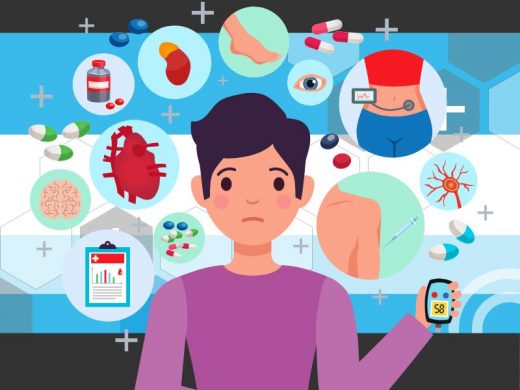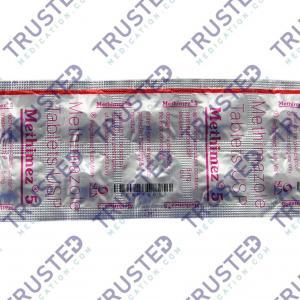
Type 1 diabetes, sometimes called juvenile diabetes or Type 1 diabetes mellitus. The condition is caused by a lack of insulin produced by the pancreas, which converts glucose into fuel in the bloodstream. The disease is chronic. Following digestion, the body changes carbohydrates in our food into glucose. It travels through the bloodstream into the cells.
Glucose is unlocked by insulin, opening up the cells for it to enter. Without insulin, the cells can not function, because the glucose remains locked out. Blood glucose levels rise when the glucose in food is not released well. A high blood sugar level, caused by an accumulation of glucose, leads to symptoms.

Symptoms of Type 1 Diabetes
- Extreme thirst
- Increased hunger after eating
- Dry mouth, vomiting, and upset stomach
- Frequent urination
- Unexplained weight loss
- Fatigue
- Blurry vision
- Heavy breathing
- Frequent infections of your skin, urinary tract, or genitals
- Crankiness or mood changes
- Bedwetting in a child
Seek medical attention if symptoms include:
- Shaking and confusion
- Rapid breathing
- Fruity smell to your breath
- Belly pain
- Loss of consciousness
How Common is Type 1 Diabetes?
Type 1 diabetes is a lot less common than Type 2. Type 1 diabetes makes up between 5 and 10% of total diabetes cases in the United States, while type 2 diabetes covers the other 90 to 95%. It is diagnosed before the age of 40, but other people being diagnosed later after an illness causes an immune response that triggers it. In the US, type 1 diabetes is typical in children between 4 and 14 years old.
Is Type 1 Diabetes Genetic?
If a family member has type 1 diabetes, other relatives have an increased chance of developing the condition. Children with type 1 diabetes had a higher chance of having a father diagnosed with type 1 diabetes. A weakened immune system or autoimmune diseases also increases your risk of having type 1 diabetes.

What are the Risk Factors of Type 1 Diabetes?
- Race. White people have more genetic predisposition to type 1 diabetes since the condition is more common in this group.
- Environmental factors. Some viruses may trigger type 1 diabetes as well. People from cold climates are more likely to have type 1 diabetes.
- Genetic factors. There are no specific explanations of what is the cause of Type 1 diabetes. But, genetic factors play a role in the genes you inherit and your family’s history of diabetes.
How to Diagnose Type 1 Diabetes?
Healthcare professionals usually diagnose type 1 diabetes through a series of tests. Doctors may also perform:
- Fasting blood sugar test
- Random blood sugar test
- Hemoglobin A1c test
Treatment for Type 1 Diabetes
- Insulin
People with type 1 diabetes must take insulin every day through an injection. It can help to level out blood sugar highs and lows. The amount of insulin you need varies throughout the day.
- Metformin
It is a type of oral diabetes medication that controls the production of sugar in the liver.
Other treatment includes proper diet, exercise, and medication maintenance.








